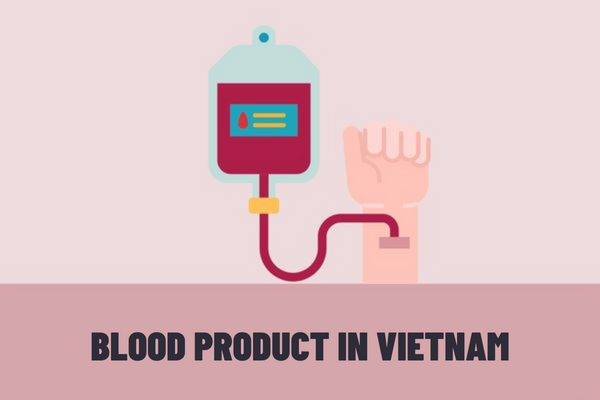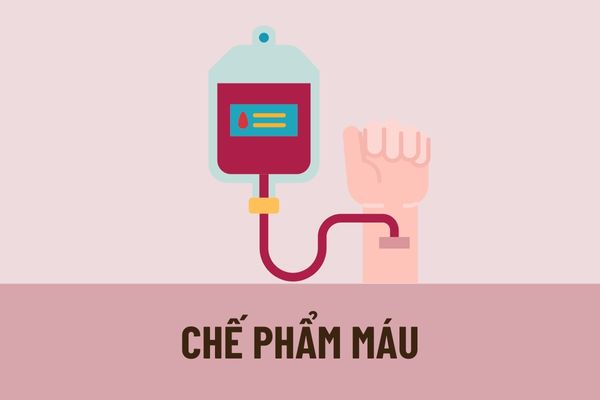What are the regulations on the principles of blood and blood product dispensation in Vietnam? What are the requirements for the delivery and receipt of blood and blood product in Vietnam?
How should blood delivery and receipt records be filed and controlled?
Pursuant to the provisions of Article 61 of Circular No. 26/2013/TT-BYT stipulating as follows:
Documents or records filed at the blood transfusion facility:
(1) All relevant documents or records relating to the blood receipt:
- Blood donor health questionnaire according to the form enclosed in the Appendix 2 issued together with Circular No. 26/2013/TT-BYT;
- Blood donor health assessment record according to the regulations laid down in the Appendix 3 issued together with Circular No. 26/2013/TT-BYT.
(2) Documents or records about the testing, preparation, storage and dispensation of blood and blood product units, including:
- Bar code of blood or blood product unit;
- Type, batch, shelf life, and control of the quality of biologics used in testing process;
- Result and conclusion of the blood test;
- Manuals on storage, inspection and destruction of preserved pathological specimens;
- Materials about blood components in each blood donation;
- Information about the name of blood component type, preparation method, used equipment and device, bar code, blood group, preparation date, expiry date, name of the blood collection, testing and preparation facility.
Documents or records filed at the blood-using healthcare facility:
(1) Documents showing the receipt of blood from other blood supply facilities:
- Note of blood or blood product delivery or receipt;
- Note of blood or blood product return (if any).
(2) Documents on the receipt of blood from departments or wards affiliated to the healthcare facility:
- Blood or blood product request form;
- Blood or blood product dispensation record.
(3) Documents or records relating to the testing of blood for the immunological compatibility before dispensation:
- Type, batch, expiry date, control of the quality of biologics used in blood testing process;
- The result of the blood typing and immunological compatibility test;
- The result of the test for screening and identifying any abnormal antibodies (if any).
(4) Documents relating to the use of blood at the healthcare facility: blood or blood product request and dispensation logbook and blood transfusion slip;
(5) Documents relating to the handling of transfusion-related accidents:
- At the blood dispensation facility: report on any transfusion-associated accident; record on the delivery and receipt of blood or blood product units associated with accidents; the result of tests for investigating transfusion-related accidents stipulated by Clause 2 Article 52 of Circular No. 26/2013/TT-BYT;
- At the blood-using department or ward: document recording the patient state, applied solution or treatment; result of the testing of blood and urine sample before and after an accident associated with the blood transfusion happens.
Note: Work processes, records, documents, templates and document control system shall be stored in the form of a normal written instrument or an electronic document system.
All documents or records shall be stored for 10 years from the date of the most recent update.
Any records or documents of which the storage term expires shall be destroyed in accordance with effective laws.
What are the regulations on the principles of blood and blood product dispensation in Vietnam? What are the requirements for the delivery and receipt of blood and blood product in Vietnam?
What are the regulations on the principles of blood and blood product dispensation in Vietnam?
Pursuant to the provisions of Article 38 of Circular No. 26/2013/TT-BYT stipulating the principles of blood and blood product dispensation as follows:
Principle of blood or blood product dispensation, use and withholding
1. Blood and blood product unit shall be dispensed to patients only when there is no risk of infecting pathogens causing blood borne diseases; all necessary tests for determination of ABO, Rh(D) blood group system are performed; blood and blood product unit conforms to relevant statutory standards and does not exceed the regulated shelf life for each type; there is no abnormal signs detected by the examination of the outside of blood or blood product bags; these must ensure the immunological compatibility between the blood and blood product unit and the blood recipient.
2. The blood or blood product shall be withheld or quarantined if it falls into the following cases:
a) The cases stipulated by Clause 2 and 3 Article 17 hereof;
b) The cases stipulated by Clause 2 Article 41 hereof.
c) The whole blood and blood products such as plasma, platelets, leukocytes collected from the unit of blood or blood component when being tested for any abnormal antibody under the provision of Point c Clause 4 Article 14 hereof must have the positive or suspected positive result.
3. The blood transfusion medication must be based on the pathological state of each patient.
4. The blood dispensation department of healthcare facilities must perform medical tests to assess the immunological compatibility of transfused blood and directly dispense the donated blood or blood product unit transfused into patients to affiliated clinical wards.
Thus, blood and blood product unit shall be dispensed to patients only when there is no risk of infecting pathogens causing blood borne diseases; all necessary tests for determination of ABO, Rh(D) blood group system are performed; blood and blood product unit conforms to relevant statutory standards and does not exceed the regulated shelf life for each type; there is no abnormal signs detected by the examination of the outside of blood or blood product bags; these must ensure the immunological compatibility between the blood and blood product unit and the blood recipient.
The blood dispensation department of healthcare facilities must perform medical tests to assess the immunological compatibility of transfused blood and directly dispense the donated blood or blood product unit transfused into patients to affiliated clinical wards.
What are the requirements for the delivery and receipt of blood and blood product in Vietnam?
Pursuant to Article 39 of Circular No. 26/2013/TT-BYT, the delivery and receipt of blood and blood products between the blood supply facility and the healthcare facility or between healthcare facilities shall be allowed if the following requirements are met:
- That healthcare facility is permitted by the competent authority to supply the blood or blood product to other healthcare facility;
- There is a contract for blood and blood product supply between the blood, blood product supplier and the blood, blood product recipient;
- The request form for blood and blood products supplied under the provisions of the Appendix 8 enclosed with Circular No. 26/2013/TT-BYT;
- If there is no contract for blood supply, this blood request form must be signed for confirmation from the leader's representative or authorized person of that healthcare facility;
- There must be medical staff for blood delivery and receipt;
- There must be proper equipment used for storage and shipping of blood and blood products;
- The blood-received or dispatched documentation must be stored and monitored under the provision of Article 61 of Circular No. 26/2013/TT-BYT.
LawNet
